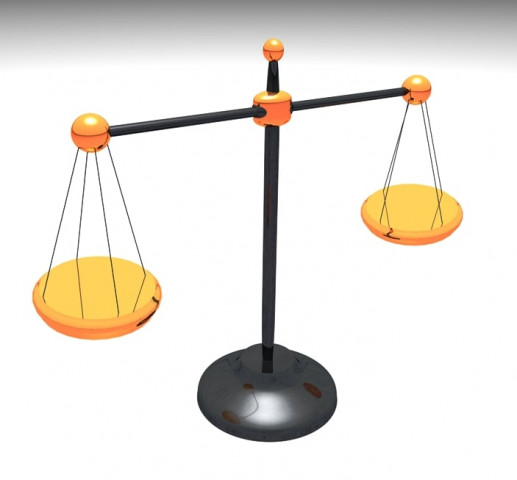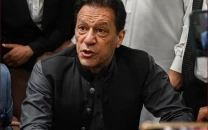Institution building: Less is more in judicial activism says Gerhard Casper
Casper believes there are no neat formulas or legal syllogisms which determine the interaction of the branches.

Institution building: Less is more in judicial activism says Gerhard Casper
But does such judicial activism strengthen the institution of judiciary? Former president of Stanford University, and a legal expert, believes otherwise.
The South Asian phenomenon of supreme courts taking cognizance of issues not before them – acting suo motu – is highly unusual in the world and adds tremendous complications vis-à-vis impartiality of the judiciary, said Gerhard Casper, professor of law and political science and President Emeritus of Stanford University, in an interview with The Express Tribune. Of the three separate powers – the executive, the legislature and the judiciary – the judiciary is sharply different from the other two because while parliament and the executive are directly accountable to the voters, the need for an independent judiciary provides more autonomy to the judiciary than to elected officials, Casper said.
In return, in most countries, judges are expected to express opinions primarily through the decisions of cases that litigants have brought before them, he said.
Therefore, if the judges care about judicial authority and genuine respect in the long run, they should observe extraordinary self-restraint, not just in the courtroom, but also with respect to their extrajudicial statements and speeches, Casper added.
Why immunity is imperative?
The professor also explained why immunity for top office holders is imperative for stabilising fragile democratic systems.
Power struggles between branches can lead to a growing sense of cynicism and instability on the part of the electorate as office-bearers fight over turf, Casper said.
This is why many constitutions protect the tenure of certain high officials by providing for special procedures for the removal of presidents or, for that matter, the removal of judges during their term in office, he added.
A Supreme Court or High Court judge in Pakistan can be removed only after a decision of the Supreme Judicial Council. Likewise, presidents can be removed only through impeachment. Immunity from prosecution for presidents in office, therefore, serves the same stability enhancing function, the professor said.
Summoning the premier
Is there a way to reduce friction in the interaction between the branches?
Casper believes there are no neat formulas or legal syllogisms which determine the interaction of the branches.
In this area, decisions to proceed in a certain way are not just a legal matter but also a matter of political wisdom – not in the sense of political partisanship but in the sense of how to assure the future well-being of the polity, he said.
Given the interest in preserving the separation of executive and judicial functions, Casper said he viewed the summoning of prime minister by the Supreme Court as inappropriate.
“How many prime ministers can you sack for contempt of court?” he said.
He also said the letter seeking the help of the Swiss authorities will not cause the president to step down – it would only be one step in a criminal proceeding.
Was the contempt law kosher?
In the aftermath of the apex court sending former prime minister Yousaf Raza Gilani packing home for contempt of court, the government hurriedly passed the Contempt of Court Bill 2012, under which, if an accused or convict of contempt of court files an appeal, their show-cause notice or original order will remain suspended till final disposal of the matter.
The law was struck down by the Supreme Court. Casper said he agreed with the decision holding the law unconstitutional.
The Pakistani constitution does not seem to provide for formal exceptions to the reach of the contempt of court jurisdiction, he said, adding that the government was ill-advised in pursuing this legislative ad hoc solution.
An effort to exempt certain officials from contempt of court seems to call for a constitutional amendment, he added.
Moving forward amicably
To prevent confrontation between the two branches of state from escalating, and in light of the election coming early next year, Casper said he would suspend enforcement of any future decision in order.
Not all conflicts can or should be resolved with finality, he said, adding that holding somebody in contempt of court, more than many other decisions of judges, is subject to judicial discretion.
Published in The Express Tribune, October 3rd, 2012.



















COMMENTS
Comments are moderated and generally will be posted if they are on-topic and not abusive.
For more information, please see our Comments FAQ